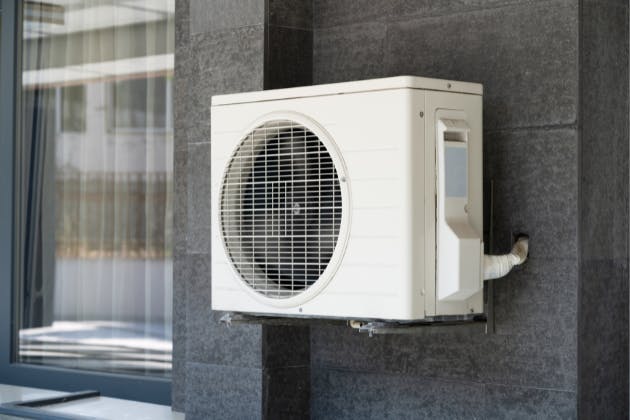Heat pumps are praised for their energy efficiency, but when freezing weather hits, they can sometimes underperform. Understanding why this happens is crucial to maintaining a warm home and ensuring your heating system operates smoothly. Here’s everything you need to know about common cold-weather issues and how to overcome them.

Why Do Heat Pumps Struggle in Freezing Weather?
The Challenge in Freezing Conditions
Air source heat pumps rely on drawing heat from the surrounding air. In freezing weather, there’s still heat in the air, just much less of it. As the temperature outside drops, the heat pump has to work harder to extract enough warmth to maintain indoor comfort. This added strain can lead to longer run times, higher electricity usage, and reduced efficiency.
Frost Build-Up on the Outdoor Unit
One of the most common issues heat pumps encounter in cold weather is the formation of frost or ice on the outdoor coil. When moisture in the air comes into contact with the cold coil, it can freeze, restricting airflow. To counter this, most systems include a defrost cycle, which temporarily reverses the heat flow to melt the ice. However, during this cycle, the heat pump isn’t warming your home, and if defrosting happens frequently, indoor temperatures may drop or fluctuate.
Reduced Efficiency and Output
In sub-zero temperatures, the heat pump’s coefficient of performance (COP) declines, meaning it generates less heat for every unit of electricity used. Some systems may also reduce their output to prevent overloading the compressor, primarily if the unit hasn’t been serviced regularly. This can make it more challenging to meet the demand for heating during prolonged cold spells.
The Role of Backup Heating
Many homes with heat pumps also have secondary heating systems, such as electric resistance heaters or boilers, to provide additional warmth when outdoor temperatures fall too low. These backups can be set to kick in automatically, but they tend to be less efficient and more expensive to run. Without them, homeowners may notice colder rooms or inconsistent heating in extreme conditions.
What You Can Do
If you rely on a heat pump, there are steps you can take to minimise performance issues in winter. Keeping the outdoor unit clear of snow, leaves, and debris helps maintain airflow and reduces the risk of icing. Regular servicing ensures defrost settings and sensors are working correctly. In particularly cold regions, choosing a system designed for low-temperature performance, or installing a hybrid setup, can help maintain comfort without compromising efficiency.
Final Thoughts
Heat pumps remain an excellent solution for low-carbon heating in the UK, but it’s essential to understand their limitations in freezing weather. With proper planning, maintenance, and system design, you can ensure reliable performance even when temperatures drop.
Need help with your heat pump in Norwich or Norfolk this winter?
Norfolk Renewable Heating provides expert support, servicing, and installation for heat pumps in cold climates. Call us on 07824 393403 or 07939 979217, or fill out our contact form to speak to our team today.

